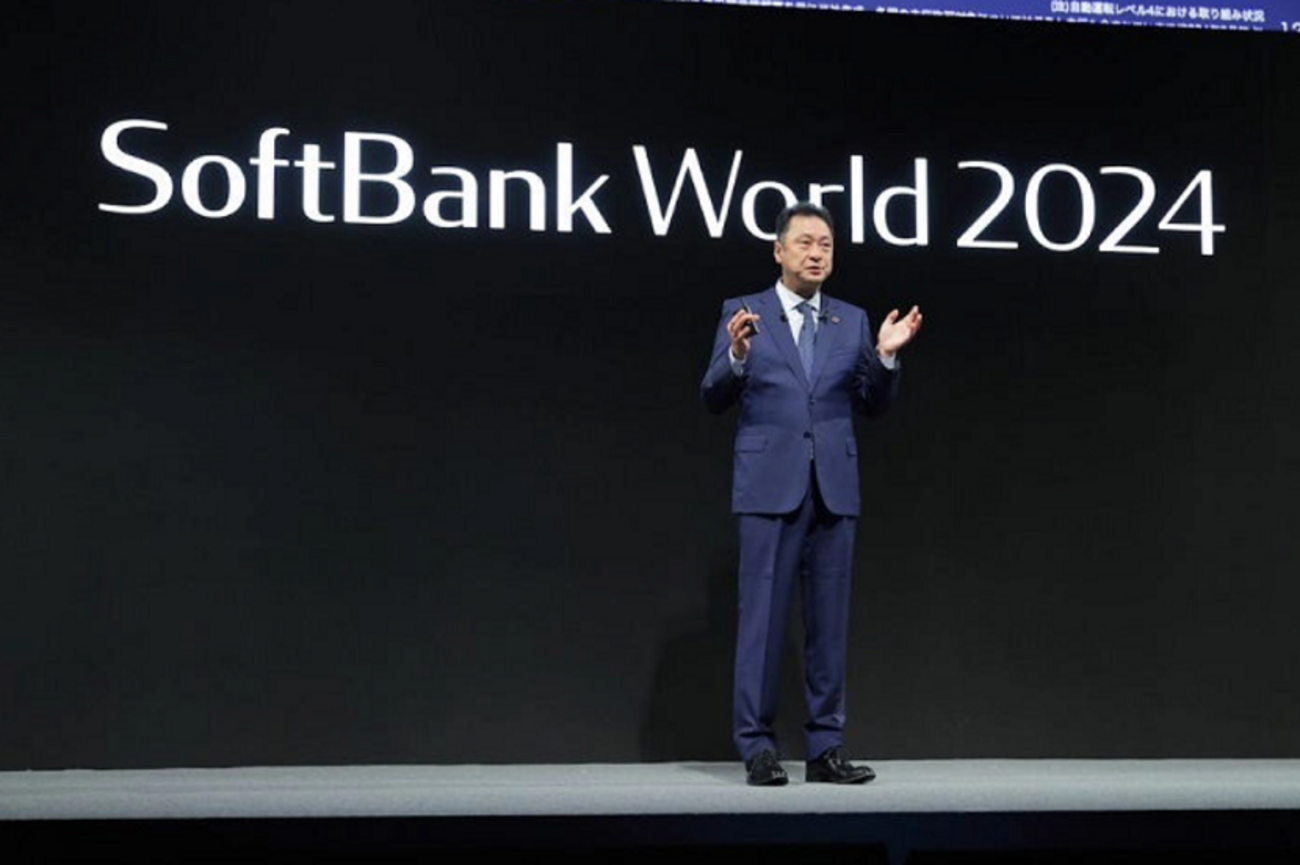
(Photo : Softbank)
The Japanese tech and investment giant, SoftBank Group, has reported a strong financial turnaround, with a net profit of 1.18 trillion yen, or $7.7 billion, for the quarter ending September 2024, in sharp contrast to its 931-billion-yen loss registered in the same period last year.
The results beat expectations for a 287 billion yen, or $1.87 billion, based on the average of analysts' estimates compiled by LSEG. This impressive profit is primarily due to an increase in share prices across SoftBank's Vision Fund investments, particularly in companies like Coupang, Didi Global, and Bytedance.
According to the earnings report, the Vision Fund unit-a crucial component of SoftBank's global investment strategy-generated an impressive investment gain of 608 billion yen, or $3.96 billion, in the current quarter. This gain reflects how SoftBank's calculated bets on companies in high-growth sectors, especially in Asia, have paid off. The improved share performance of companies like South Korea's e-commerce giant Coupang, China's ride-hailing firm Didi Global, and Bytedance, the parent company of TikTok, was instrumental in the company surpassing profit expectations.
The turnaround comes after a series of setbacks that SoftBank's Vision Fund suffered in the past. Its high-risk, high-reward investment model has faced criticism, especially after WeWork-a prominent Vision Fund investment-filed for bankruptcy last November. This investment had created a serious dent in the financial health of the Fund and contributed to substantial losses reported by the company last year.
However, WeWork's emergence from Chapter 11 in June 2024 has reduced some financial pressure. This quarter's profit signals that some of SoftBank's investments are in recovery mode.
Under the leadership of Masayoshi Son, SoftBank is embracing the AI boom as the next major frontier in technology investment. Son, in a rare public appearance on Friday, shared his thoughts on the AI revolution, predicting the rise of super AI that will be "10,000 times smarter than humans within the next decade." In line with this vision, the company has increased its exposure to artificial intelligence by acquiring stakes in leading AI companies like Nvidia and committing a recent $500 million to OpenAI.
Impact of U.S. Policies on India's Startup Ecosystem and SoftBank's Exposure to China
SoftBank's financial turnaround and renewed focus on AI hold significant implications for India, where it has been a major investor in the tech and startup ecosystem. The company has backed several major Indian firms, including Paytm, Ola Cabs, and Flipkart, fuelling their growth, and is expected to increase its investment in AI-driven startups in the future. These investments are part of a larger strategy to capture growth in one of the world's largest and fastest-growing digital markets.
However, the company is cautious about its investments in China, as new U.S. government policies and tariffs could be critical for SoftBank's growth in Asian markets. In recent years, the investment fund has reduced its direct exposure to Chinese companies and, this year, withdrew from Paytm, an Indian payment gateway firm that also has investments from Chinese companies.
The upward valuation of SoftBank's Vision Fund investments may lead to increased capital allocation towards India-based startups within its portfolio, as the company seeks to leverage India's ongoing digital transformation and the growing AI sector.









